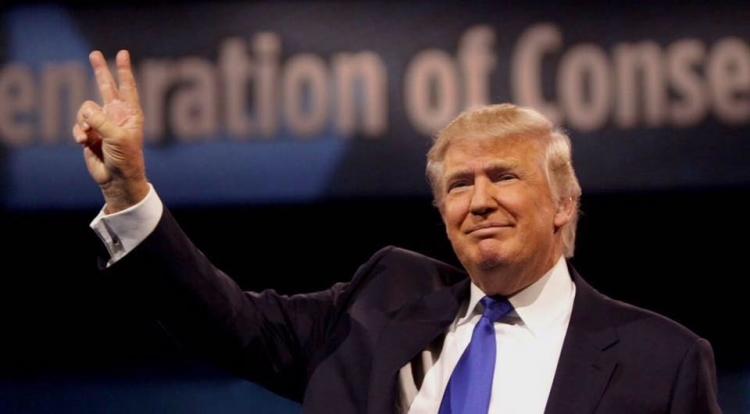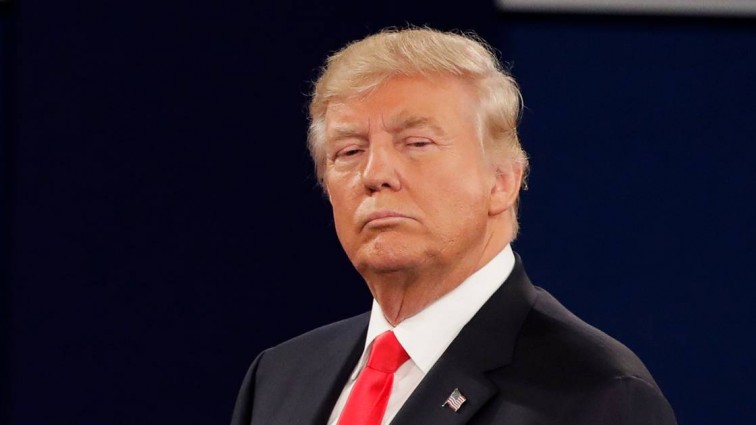The biggest problem for Trump will be Syria! And here’s why…

President Donald Trump has dodged his first big foreign policy challenge.
The announcement by acting State Department spokesman Mark Toner that the US ambassador to Kazakhstan will attend Russian initiated Syria peace talks in Astana, beginning Monday takes pressure off the Trump administration.
Whether by accident or intent, Russian President Vladimir Putin called for these talks to start three days after Trump's inauguration, and he only last week invited a US representative in an observer capacity.
With Trump's new administration far from fully up and running, Toner's announcement gives Trump breathing room as Putin appears to set a Syria agenda designed to keep the US and Trump on the back foot.
The Kremlin says it wants the talks to help cement a Syria ceasefire, but by marginalizing the US in the process, Putin is taking the lead in setting the terms of the outcome.

The politics behind who's invited
The decision as to who gets invited to join peace talks concerning the future of Syria had previously been that of the UN — closely controlled by the US.
But in the case of the talks due to take place in Astana, Russia is in the driver's seat. It is the sponsor of the talks and gets to decide who comes.
Only days before participants were due to arrive did the US get an invitation — as an observer, only.
Though this is a huge climb down for the US from previous peace efforts in Geneva, Switzerland, it must be considered that those previous talks didn't get very far.
The Geneva talks were supposed to usher in a transition from proximity contact — parties meeting in separate rooms — to protagonists meeting face to face. It never got beyond proximity.
It was limited to one group representing opposition, one the government.
In Astana, the stage seems set for broader participation.
Many of the opposition and rebel groups in Syria have said they will attend, as well as the Syrian government and peace guarantors Russia, Iran and Turkey.
Why Syria is Trump's biggest challenge?
With Putin the big power broker in Syria and the US now just a bit player, Trump's challenge will be to leverage the minimal hand Obama left him in securing US interests here and in the Middle East at large.

Both Trump and Putin want ISIS gone. But that may be all they have in common.
Russia's big ally in Syria is Iran: they both back Syrian President Bashar al-Assad, who Obama has said has blood on his hands, and who Trump himself says is bad.
Separating Iran and Russia over Syria may be Trump's most fundamental foreign policy challenge.
But splitting the atom may be easier than dividing the axis of Putin, Assad and Iranian Supreme Leader Ayatollah Ali Khamenei.
Taken at his word — a dislike for Iran, an affinity for Putin, a dislike of Assad and a hatred of ISIS — Trump's dilemma is clear.
Why backing Putin outrages US allies in Middle East
To back Putin in Syria is to also back Iran, an anathema to many Republicans, some of whom are still seething over Obama's nuclear deal with the theocracy.
Backing Shia Iran is also an outrage to many of the US's allies in the Middle East, most of whom are Sunni Muslims.
In the Middle East today, there is simmering cold war between the Sunni and Shia populations. Many Sunnis fear that following the Bush invasion of Iraq, Iranian influence in the country is at an all-time high.
The growing influence of Iran is also a serious security concern for the US's most important ally in the region: Israel.
It gets more complicated
ISIS and al Qaeda have thrived thanks in part to Syria's civil war. Without a political solution — and that means replacing Assad — they may never be eradicated.
As Assad is Iran's key link to Hezbollah, even if Putin wanted to ditch the Syrian leader he'd face pushback from Tehran. Why would Putin risk this when Trump's hand is so weakened?
Trump also comes to the negotiating table as US ally Turkey seems to be turning to Putin. Turkey is increasingly angry that the US has backed Kurds to fight Assad and ISIS in Syria.
What would Putin want in return for any deal in Syria? Simple, but likely beyond Trump's reach to give: recognition of Putin's suzerainty in Syria, sanctions lifted over his seizure of Crimea and incursion into Ukraine, and NATO to step away from Russia's border.
That alone is a tall order, but to push through a deal that ignores Middle East allies would be tantamount to Obama's vacillation on chemical weapons, when he pledged to retaliate if Syria deployed such weapons, then didn't. Putin would win, and US regional leverage would wither.











